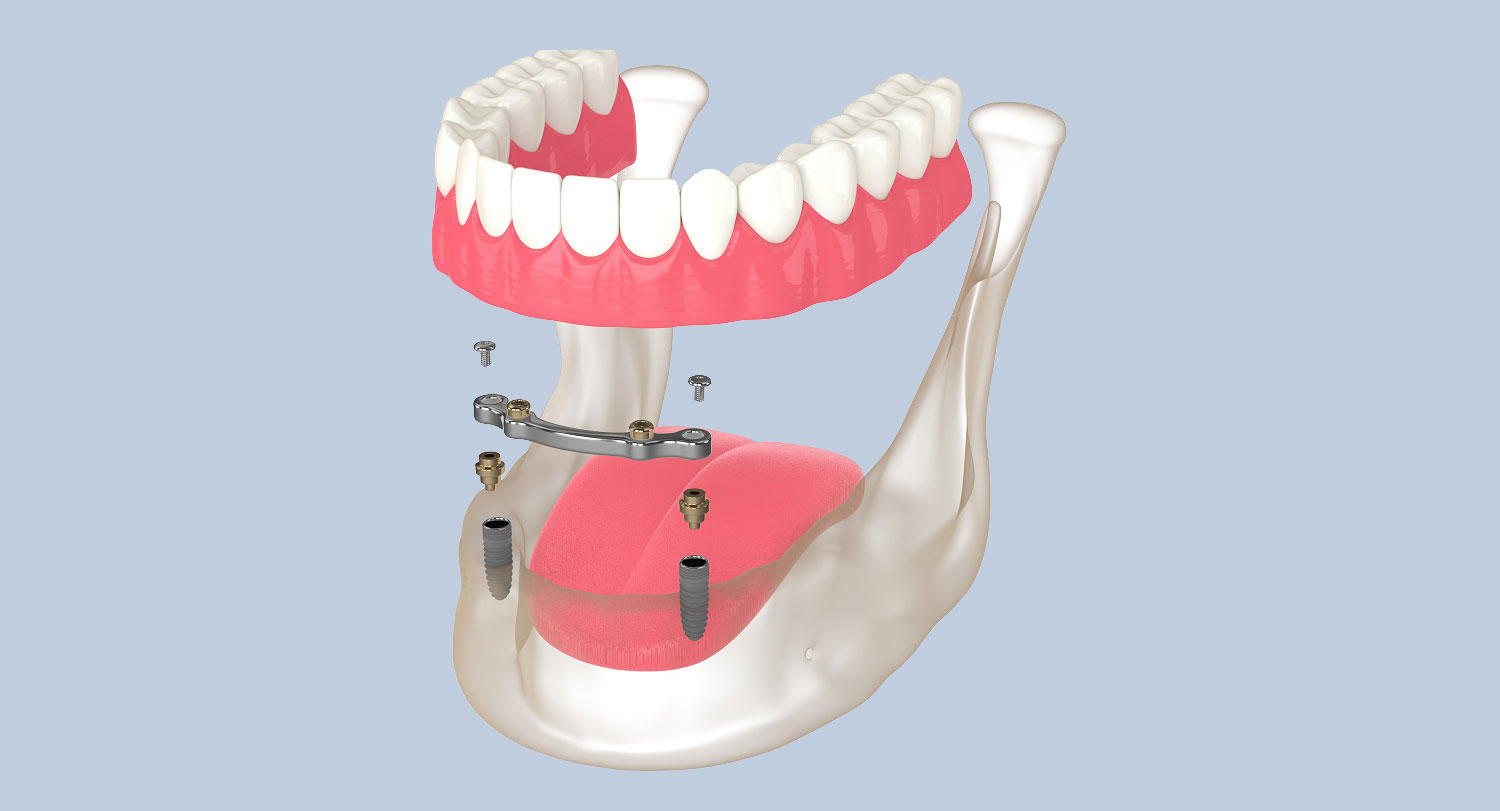Implant retained dentures are becoming a popular option for patients who need to replace lost or damaged teeth. With advances in dental technology, implant-supported dentures provide increased stability and comfort compared with traditional removable dentures.
But how do you know if implant retained dentures are right for you? This guide examines the pros and cons to determine whether they’re the best solution for your dental needs. Let’s get started.
- Pro #1: Implants Preserve Jawbone
Missing or damaged teeth can lead to bone loss in the jaw, but implant retained dentures offer a solution to this problem. These dentures are anchored by dental implants, which support the dentures and preserve the jawbone.
Unlike traditional dentures that rest on the gums, implant retained dentures prevent the jawbone from deteriorating over time. This is essential because the healthy bone structure in the jaw is necessary to maintain facial structure and prevent further oral health problems.
Additionally, implant retained dentures are more comfortable and stable than traditional dentures, allowing individuals to speak and eat confidently. By choosing implant retained dentures, patients can enjoy a healthier, more functional smile that’ll last for years.
- Pro #2: Fewer Dietary Restrictions
While there may be a lot of pros and cons of implant dentures, there’s no denying that the advantages far outweigh the disadvantages. Patients can enjoy their favourite food without worrying about denture slippage or discomfort with implant retained dentures. This is because the implants, which are surgically placed in the jawbone, provide a sturdy and secure base for the dentures. In short, patients can bite, chew, and eat confidently, knowing their dentures will not move or come loose.
Eating a wider variety of food can make mealtimes more enjoyable and improve the overall quality of life. In addition, with fewer restrictions on what they can eat, patients may be able to obtain better nutrition, which can lead to better overall health.
- Pro #3: Denture Stability
Implant retained dentures provide increased stability compared with traditional dentures. Some people may experience discomfort, irritation, and difficulty speaking or eating with regular dentures.
However, implant retained dentures are secured to the jawbone through dental implants. This eliminates the possibility of slippage or shifting. Patients who choose implant retained dentures can enjoy a reliable, stable form of tooth replacement that feels secure and natural.
- Pro #4: No Adhesives
With implant retained dentures, there’s no need for adhesives. The adhesive required to hold traditional dentures in place can be messy, uncomfortable, and downright frustrating.
Implant-retained dentures are secured in place by surgically inserted implants into the jawbone. This gives dentures a solid, stable base, allowing them to stay in place without any additional support. Not only does this make daily denture use more convenient, but it can also boost your confidence and allow you to eat, speak, and smile with ease.
- Con #1: A Surgical Procedure Is Required
One of the drawbacks of implant retained dentures is that the procedure requires surgery. This can be daunting for some patients who may be nervous about going under the knife. However, you may want to note that the surgery for implant retained dentures is minimally invasive and has a high success rate.
Additionally, the benefits of implant retained dentures outweigh the risks of surgery for many patients. For those looking for a more stable, comfortable, and long-lasting solution for their dentures, implant retained dentures may be the right choice, despite the need for a surgical procedure. Talk about any concerns or questions with your dentist or oral surgeon. You can also ask them about implant dentures’ pros and cons before you decide what you want.
- Con #2: It Can Be Expensive
While implant retained dentures may come with many benefits, there’s no denying that they can be expensive. Given that the procedure involves placing implant posts in the jawbone and fabricating a customised denture that snaps onto these posts, it’s no surprise that the overall cost can be high.
Still, it’s worth noting that the expense can vary based on numerous factors. These factors include the number of implants required, the material used, and the location of the dental clinic. Despite the cost, many patients find that implant retained dentures provide a long-lasting and comfortable solution to their dental needs, which may ultimately justify the investment.
- Con #3:May Not Be Suitable for Everyone
While implant retained dentures can offer numerous benefits for eligible patients, they’re not a one-size-fits-all solution. Unfortunately, some patients may not be good candidates for this type of dental implant.
Factors such as bone density, medical conditions, and smoking history can all impact a patient’s ability to receive implants. Also, the cost can be prohibitive for some individuals who may opt for traditional dentures instead. Patients must discuss some of the implant dentures pros and cons with their dentist to determine if this dental procedure is the right choice.
Conclusion
Implant retained dentures can be an excellent choice for many people looking to replace missing teeth. While they may be expensive initially and require monthly check-ups, the quality-of-life improvements they offer make them well worth considering. For many who cannot wear traditional dentures, implant retained dentures can provide an ideal tooth replacement solution. Generally speaking, they offer numerous advantages. This makes them attractive to many individuals who have lost some or all their natural teeth. Still, you may want to consult a professional dental specialist who can highly advise you to ensure this option is the most suitable for you. They can also tell you some of the pros and cons so that you can make an educated choice.






